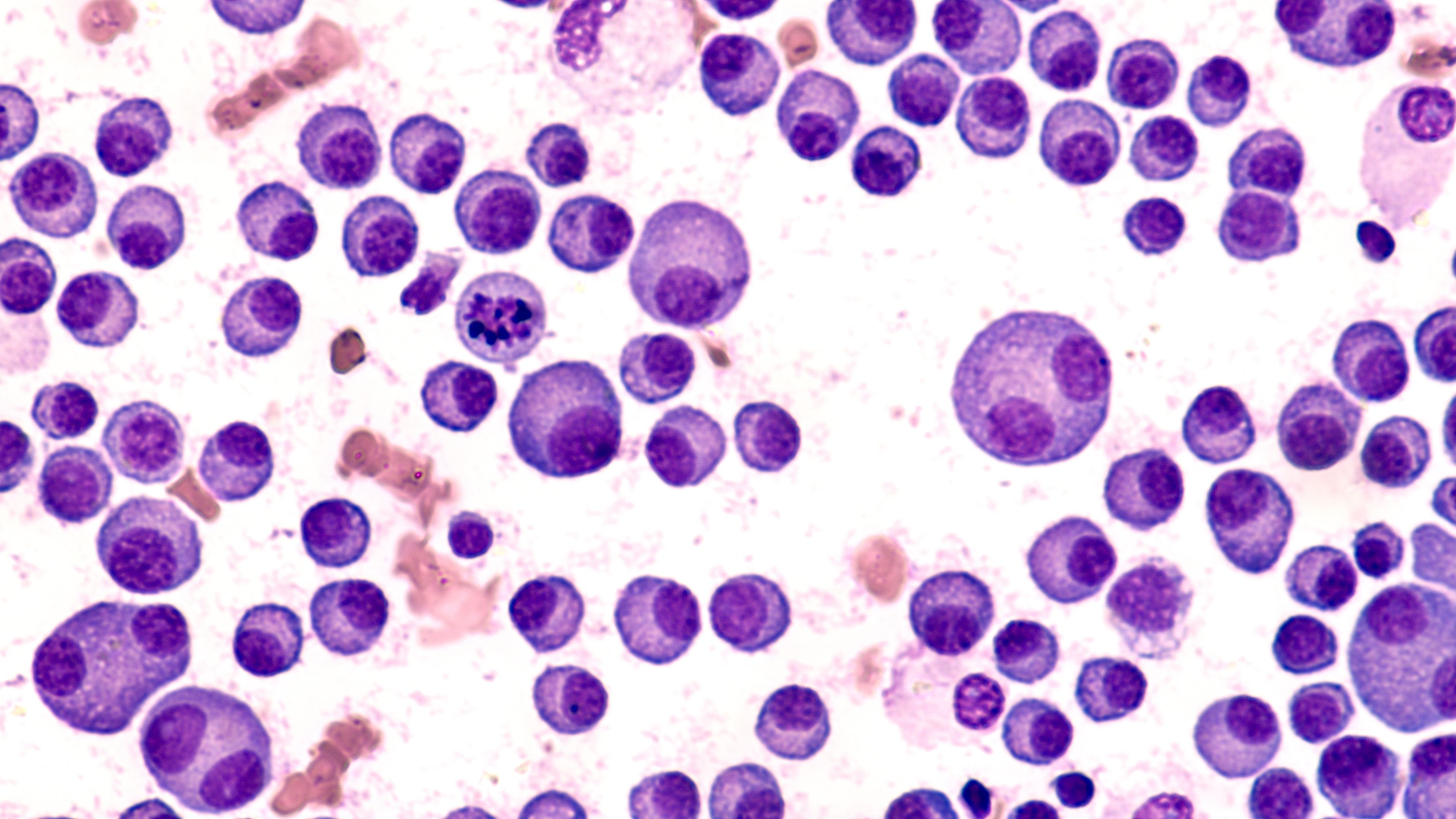
Hematology
Latest News
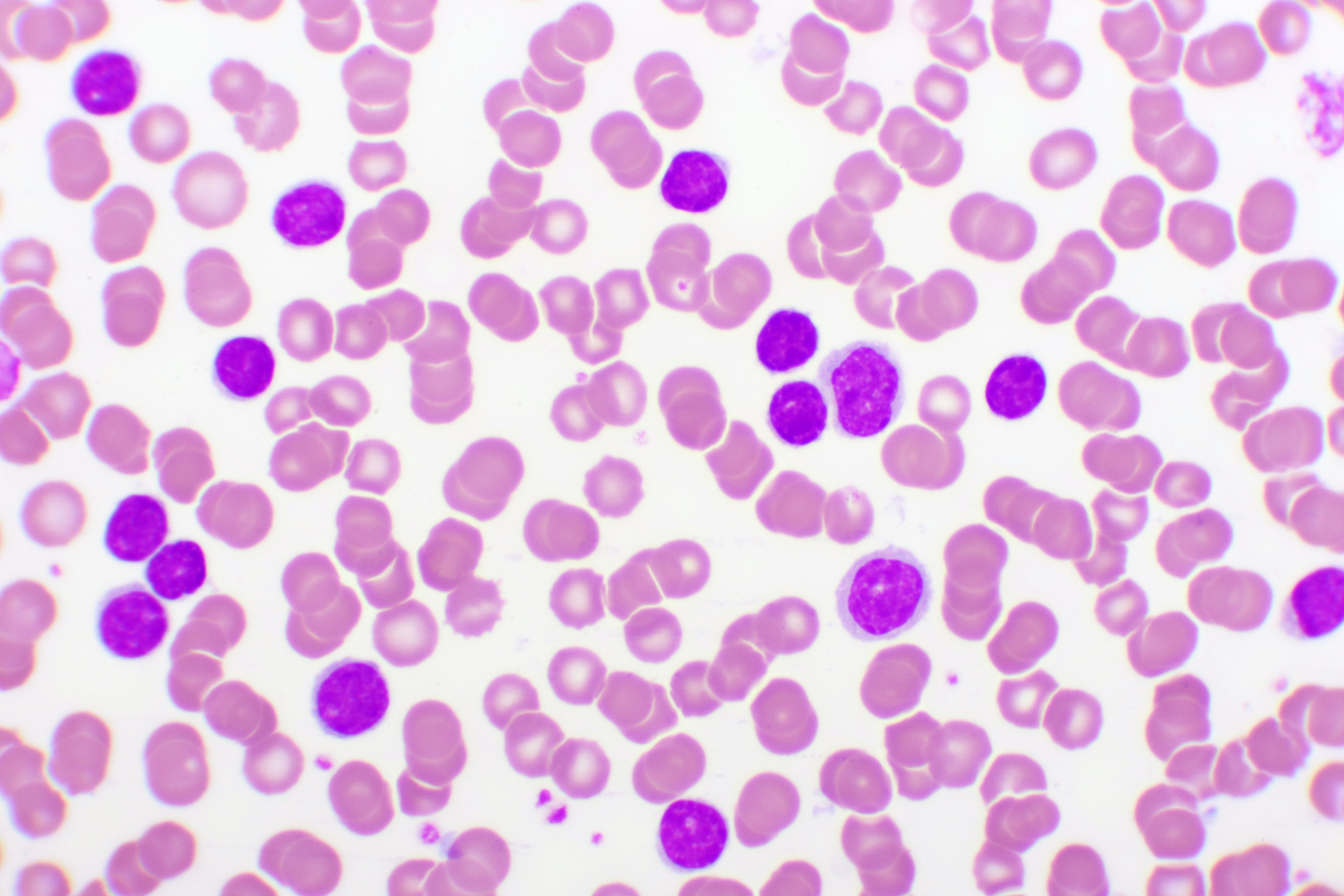
Latest Videos

CME Content
More News

The study findings have implications for the identification of novel pathways with which to selectively target folate-metabolism blood cancers.

The president highlights a new curative treatment option for sickle cell disease while also expanding on the changing treatment landscape for hematologic conditions.

This FDA approval represents the first cell-based gene therapies for the treatment of sickle cell disease in patients 12 years of age and older.
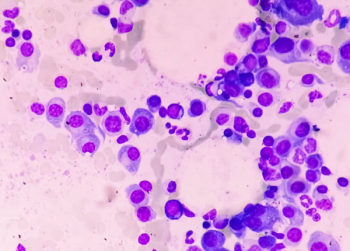
ASH is happening December 9 through 12 in San Diego, California.

During clinical trials, individuals treated with iptacopan had increased hemoglobin levels and did not need to receive blood transfusions.

Currently, there is no established standard of care treatment approach of HGBL, with frontline interventions consisting of chemo-immunotherapies.

Pirtobrutinib is the first and only non-covalent BTK inhibitor to be approved by the FDA and is indicated for adult patients who already received at least 2 prior lines of therapy.

This is KRP203’s second Orphan Drug Designation and it is the only S1P receptor modulator being developed as an adjunctive and maintenance treatment for blood cancers.

Belantamab mafodotin (Blenrep; GlaxoSmithKline) demonstrated that, when combined with bortezomib and dexamethasone (BorDex), the time to disease progression or death was extended.

Although vaccination status and the severity of COVID-19 infection were not correlated, the timing of vaccine administration influenced whether patients had severe COVID-19 infection.

The update followed results from the phase 1/2 EPCORE NHL-1 clinical trial evaluating the safety and preliminary efficacy of the drug, including in individuals with relapsed or refractory follicular lymphoma.
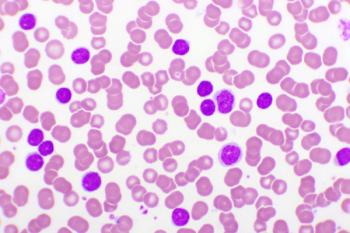
In crafting a patient-centered regimen, the convergence of expertise from physicians and pharmacists, paired with the values and preferences of patients, becomes paramount.
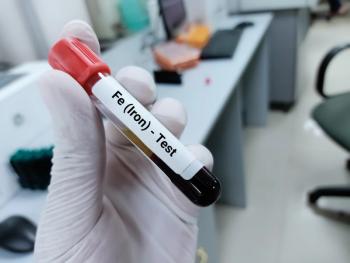
Pharmacies have the potential to introduce testing services, promote public health campaigns, collaborate with anemia-led clinics, and get more prescribing rights to diagnose anemia.
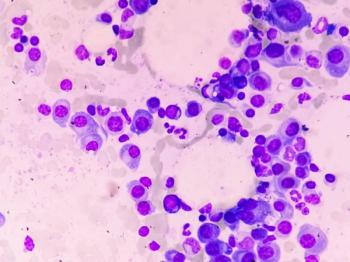
The review comes after phase 3 trial results that indicate an improvement in overall survival and progression-free survival, reducing the risk of disease progression and death.
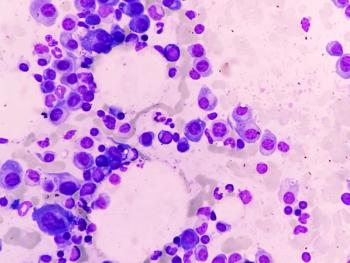
The study authors suggest that future research should instead emphasize event rates and patient-reported outcomes to better evaluate the tolerability and frequency of AEs.

The acceptance comes after results from TRANSCEND CLL 004, which is the first trial to demonstrate clinical benefit with a CAR T cell therapy in patients who were previously treated for CLL or SLL.

The on-demand enzyme replacement therapy reduced acute thrombotic thrombocytopenic purpura events in patients who experience potentially fatal blood clotting.

The study findings provide the first in-depth look at the relationship between chromosomal changes in tumor cells and immune components of the tumor microenvironment.

Data show patients are willing to accept associated risks for a chance at a cure.

Leung discusses that various cancer types and drugs can cause thrombotic microangiopathy and impact kidney health and the renal complications connected to hematologic malignancies.

AI systems can detect minute anomalies often missed by the human eye, reducing false negatives.

Although the brand name manufacturer updated the label after the FDA’s request, generic manufacturers have not all followed suit.

Choice of therapy should be selected based on patient needs and conditions.
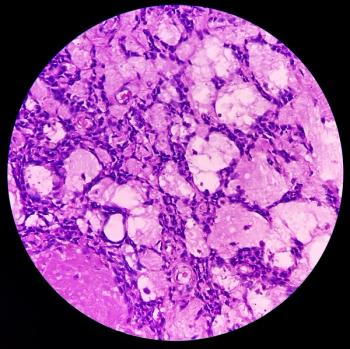
Little progress has been made in developing treatments that can help to stop Ewing sarcomas from spreading or coming back.
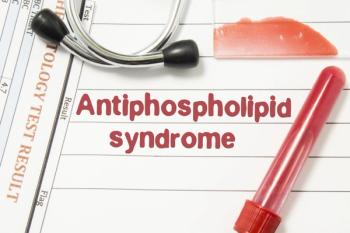
It is vital for health care teams to recognize the signs and symptoms of antiphospholipid syndrome and to identify the severity of a patient’s diagnosis based on their aPL profile.




